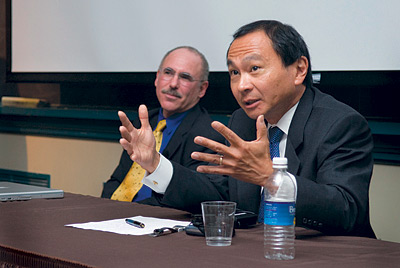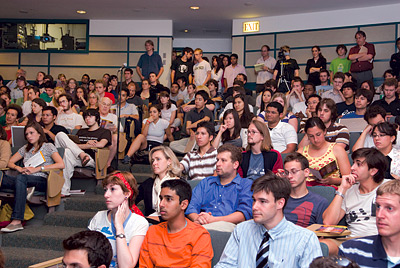
Fukuyama said he was advo- cating for disease because he worried that wiping out certain illnesses will also wipe out the positive effects of the gene that causes them. “I am not so sure we really know what is good for human beings,” he said.
As for advocating death, Fukuyama said he wasn’t sure longer for its own sake was necessarily a good thing. “Do we want this extension simply because we fear death?” he asked. “Is there actually any higher good associated with not dying when all you are trying to do is live longer?”
Silver offered a much more upbeat assessment of biotechnology’s potential. Those who worry about playing God or changing what nature intended, he said, don’t recognize that “nature doesn’t care about pain, suffering, and death,” and God “doesn’t care about individuals.” His evidence for this was the disease and misfortune that occurs

In response to Fukuyama’s argument that diseases may have their hidden upside, Silver cited the example of bipolar disorder. The evi- dence shows, he said, “there is no reason bipolar disease exists.” It’s another instance of a phenomenon that arose because “nature doesn’t give a damn” about the individual.
So if we use biotechnology to cure a fetus of bipolar disorder, we wouldn’t be so much screwing around with nature as doing what human beings have always done: alleviating suffering.
Silver’s position was that parents are in the best position to decide how to use biotechnology on their offspring.
“It’s their right,’ he said. ”Is there any reason you can think of to stop people from doing this?”





